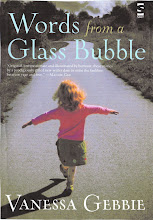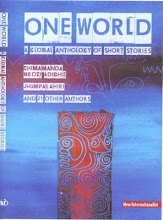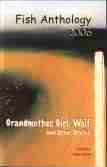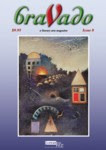Fascinating discussion in a writing group.
We all know that characters in strong fiction need to be ‘real’ for the duration of the story, in the sense that they must be ‘believed’ by the reader. They have to hold the ability to take the reader by the hand for a few minutes, helping to create the ‘fictive dream’ necessary to a seriously good read.
The reader has to be willing to be led, as well. It’s a two-way thing.
But as always, the writer is creating the world of the story, weaving the spell of the voice, the characters… to allow the reader to suspend disbelief for the duration.
How does the writer create ‘real’ characters?
Life is full of ‘real’ people... do we simply draw a few more of them?
Is it OK to create stereotypes on the basis that life is full of stereotypes, and they are ‘real’, so there’s nothing wrong with that?
Do some strong stories not need flesh and blood, differentiated characters?
All things to think about over Easter.
But I’ll just copy over a few NO NO snippets from The Willesden Herald’s list of things not to do in literary fiction, to add to the pot.
• Undifferentiated characters. A name is not a character. Pinky said this, Perky said that, Blinky said something similar and Pisky said the same, as the old wartime song might have gone. Each character should be a complete person, with their own C.V. if you like, their own history, temperament, habits, weaknesses, plans, objectives etc, though these need not and should not be explicitly listed as such.
• Boring. “Middle of page 3 and I am totally bored.” “Well enough written but what is the point?” “I’m losing the will to live.” Again, I keep repeating, the reader does not have a gun to his or her head. We have lives of our own. We don’t need to substitute somebody else’s dreary domestic arrangements in our minds for our own. To us, yours are far less interesting – and ours were not that interesting to start with. Who cares if somebody listened to a news story on the radio, went shopping, bought a packet of corn flakes. Yawn, yawn, yawn.
• Banal. Commonplace, dull, the sort of thing you hear every day. This is really a continuation of “boring”. A lot of stories about elderly people living in squalor. A particularly English phenomenon. A lot of stories about dying relatives. Ok, but they better be good. It’s important to write about these things, but when you do you need to realise that there will be ten other people writing about the same thing, so you’d better make it very good.
Me again.
I think strong fiction HAS to have a 'point' or why bother? If the close reader comes to the end of the story and thinks 'So? Why have I spent time reading this? ' because it is a close representation of life and how it is anyway... it's failed.
I think strong fiction HAS to have differentiated characters. Not just within a single piece, but your coal miner MUST differ from the hundreds of others in the lines. YOUR bored mother MUST stand out from the squillions of bored mothers in squillions of boring lives. YOUR old lady at the bus stop MUST engage the reader, not let the reader's eye wander past because shes been met thousands of times before.
The best line in the whole Willesden list , for this reader, is this
"Life can be banal, but we turn to fiction to find ...transcendence."
To be taken out of ourselves for the duration. To be given a glimpse of something else. To be lifted up and out.
Sure, an ordinary person can do that for us. A 'real' person. But they need flesh on their bones, blood in their veins, a beating heart, and they need to touch us.
To do that, they have to make us stop and listen. They need to fascinate, on some level, intrigue. They have to make us want to know...
Subscribe to:
Post Comments (Atom)




.JPG)























5 comments:
I don't get this Willesden Herald stuff. Surely it's nothing to do with 'characters', it's all about the writing - the WORDS, and the insight of the writer, as they seem to be admitting towards the end.
Hi E
I'm not sure what you mean here... I pulled out the sections to do with characerisation, broadly speaking, from the great list of 'things wrong with comp entries', posted a while back.
all these examples seemed to me to be craft issues leading to poor characterisation. all words, sure... but in this case it was the words used in creating resonant characters that weren't working.
excuse typing!
Yes, what I'm saying is that there seems to be an implication in the WH list that there are such things as 'interesting characters' and 'uninteresting characters' (ie IN THEMSELVES, whereas what they surely mean is that it's the writing which determines whether a character is interesting or not. I think they do mean that really, but they're in danger of implying something different.
Ah, I see what you mean. I can't speak for the Willesden team, obviously...but my understanding is that poor writing among other things, means poor characterisation.
So if all a character ever does is banal, and does it in cliche, and there is no depth to them,(and the story) thematically...
then they won't be the stuff of prizewinning fiction.
Post a Comment